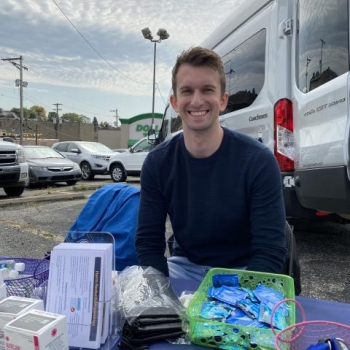Sexual Education Needs a Makeover
For all the grief and stress that COVID-19 has brought, one of the positives has been that much of the general public has become more educated on how viruses work. Along with that, and more importantly, people have become more cognizant of their own health and the health of those around them. It has become more socially acceptable to openly discuss our health and concerns regarding exposure to unwanted pathogens. Most importantly, it has become immensely clear that correct, accurate information is important for individuals to make the best decisions for their own health and safety, and I think it is time that we utilize this same mentality in a different context: our sexual health and education.
There are many aspects of our personal health, but none tend to be harder to discuss or stigmatized than our sexual health. Our tendency not to discuss our sexual health with friends and family is often related to the fear of awkward discussions, ridicule from others for the decisions we make, or uncertainty about whether the questions we have are “dumb” (Rest assured, there are no “dumb” questions when it comes to our health). Quality sexual health education is vital to inform adolescents who are beginning to enter the age of sexual maturity about safer sex practices, the risks they may be taking, and how to have discussions about sex with partners.
Our sexual health is not limited to just the physical portion of sexual interactions, but also includes the emotional and mental sides of these interactions as well. Forming healthy relationships, understanding consent, and establishing boundaries with sexual partners plays an essential role in caring for our sexual health. I cannot stress the importance of being able to have these conversations enough, especially with the development of the Me-Too Movement which brought to light many of the stories of sexual abuse and harassment.
So why focus specifically on the education? Well, despite accounting for only about 25% of sexually active population, adolescents and young adults account for 50% of all new STI diagnoses, as well as 20% of all new HIV cases. Along with these staggering numbers, sexual health education in the United States is FAR from uniform. Only 29 states and the District of Columbia have laws that require sexual education, and only half of high schools and one-fifth of middle schools teach sexual health topics that the Centers for Disease Control and Prevention (CDC) says are “essential” for healthy young people. Worst of all, only 13 states require that sexual health education is “medically accurate”, which raises questions regarding the inaccuracies of the education students are receiving even if they are receiving sexual health education.
Coming into my role as a health educator for the Allegheny County Health Department’s STD/HIV Program, one of my main roles was going to be providing health education around the county. While the pandemic has limited the opportunities to provide others with accurate sexual health education, we have been able to shift our focus to understanding the sexual health education students here in the county are receiving, and where our time and resources would be best spent. Hopefully a renewed desire for accurate education will help us to make gradual change here in Pittsburgh!
